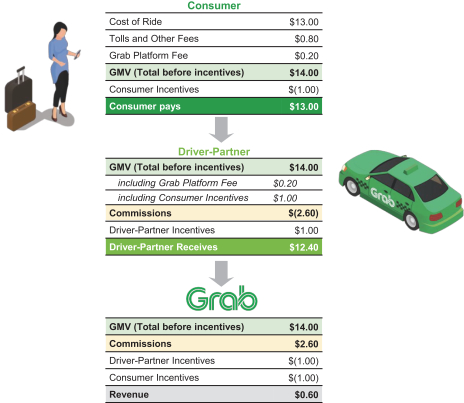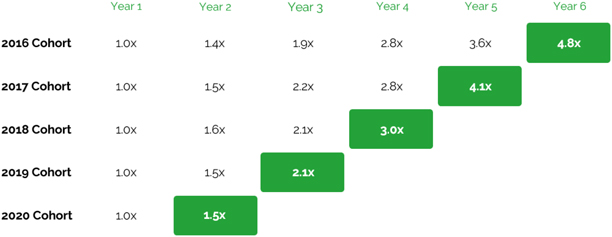Under the Financial Services Act 2013 (the “FSA”), no person may carry on an “approved business” (which includes the issuance of
e-money)
without the prior approval of the Central Bank of Malaysia, Bank Negara Malaysia (“BNM”). Under the FSA, “electronic money” or
“e-money”
is defined as any payment instrument, whether tangible or intangible, that (a) stores funds electronically in exchange of funds paid to the issuer; and (b) is able to be used as a means of making payment to any person other than the issuer.
Approved issuers of
e-money,
such as us, are subject to various operational and ongoing compliance requirements including those set out in the “Guidelines on
E-Money”
issued by BNM. These requirements relate to governance, risk management, customer protection and management of funds. In particular, BNM has issued the Policy Document on Risk Management in Technology, which sets out requirements in relation to cybersecurity and management of technology risk applicable to financial institutions including
e-money
issuers. An issuer of
e-money
is required to provide clear and easily accessible terms and conditions for the use of
e-money,
and an issuer of a large
e-money
scheme is required to deposit funds collected in exchange for the
e-money
issued in a trust account with a licensed financial institution in a timely manner. In general, the funds deposited in the trust account can be used only for refunds to users and payments to merchants. BNM has issued an exposure draft of a revised Guidelines on
E-Money
for public consultation, whereby the final policy document will replace the existing Guidelines on
E-Money.
The exposure draft is more extensive than the current Guidelines on
E-Money
and proposes among others, enhanced technology, governance and risk management requirements aimed to ensure the safety and reliability of
e-money
and preserve customers’ and merchants’ confidence in using or accepting payments in
e-money.
Non-compliance
with the above could potentially result in penalties including loss of or restriction on the license, administrative monetary penalties imposed by BNM, civil damages claims, and criminal penalties for the respective company and/or its officers up to and including fines and (in the case of officers) imprisonment for a term not exceeding ten years.
Regulations on courier services (GrabExpress)
The Postal Services Act 2012 (the “PSA”) provides for the licensing of postal services and the regulation of the postal services industry. The Malaysian Communications and Multimedia Commission (the “MCMC”) is responsible for overseeing and regulating the postal and courier services in Malaysia. The PSA provides for two forms of licenses: (i) a universal service license or (ii) a
non-universal
service license, for the provision of postal services on such terms and conditions as the Minister of Communications and Multimedia thinks fit and in accordance with the Act. “Universal service” means postal services, which include basic postal services determined by the MCMC to be provided to consumers throughout Malaysia, at the prescribed rates while
“non-universal
service” means postal services that may be provided to consumers at rates other than the prescribed rates of the universal service. There are three classes of
non-universal
service license, i.e. Class A (provision of international and domestic courier service in Malaysia), Class B (provision of international inbound courier service and domestic courier service in Malaysia) or Class C (to provide for intra-state domestic courier service in Malaysia). The PSA contains, among others, principles on rates settings, general competition practices and provisions on consumer protection that are applicable to postal services licensees. Under Section 14 of the PSA, if a licensee fails to comply with the conditions of a license issued by MCMC under the PSA, the licensee shall upon conviction be liable to pay a fine not exceeding MYR300,000 or imprisonment for a term not exceeding three years or both. Section 17 of the PSA, on the other hand, empowers the minister to suspend or revoke the license if the licensee fails to comply with the provision of the Act or the provision of the conditions stipulated in the license. Section 16 of the PSA prohibits the assignment and transfer of license, where upon conviction, the offender would be liable to pay a fine not exceeding MYR500,000 or imprisonment for a term not exceeding five years or both.
In a public consultation document published on July 5, 2021, MCMC states that it plans to introduce a new courier licensing policy and framework based on the guiding principles of, among others, moving from laissez-faire to sustainability model, taking a risk-based approach, having a fair licensing fee structure and being data driven. The public consultation document also proposes three new classes for courier service licenses, namely
N-Courier
(for national delivery service),
U-Courier
(for urban delivery service) and
I-Courier
(for
pick-up
drop off points and intermediary service). For each of these classes of courier service licenses, certain criteria would need to be met such as minimum
paid-up
capital requirements and even a majority local equity requirement for
N-Courier
licensees. Other than the new classes of licenses, the public consultation document also proposes a new annual license fee model as well as proposes to introduce new special license conditions. According to the MCMC, all existing licensees will be migrated to the new licensing framework by December 31, 2022 even though the tenure of their existing licenses have yet to expire. By default, all existing licensees will be migrated to
U-Courier
licenses whilst the process for
N-Courier
will be done through an application process under guidance by the MCMC. New independent
pick-up
drop off players may apply under the normal process for
I-Courier.






